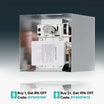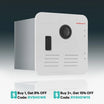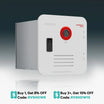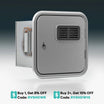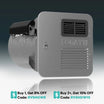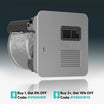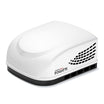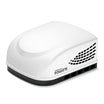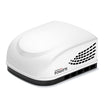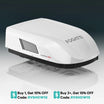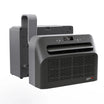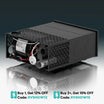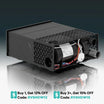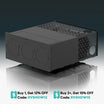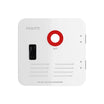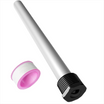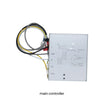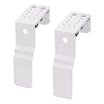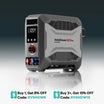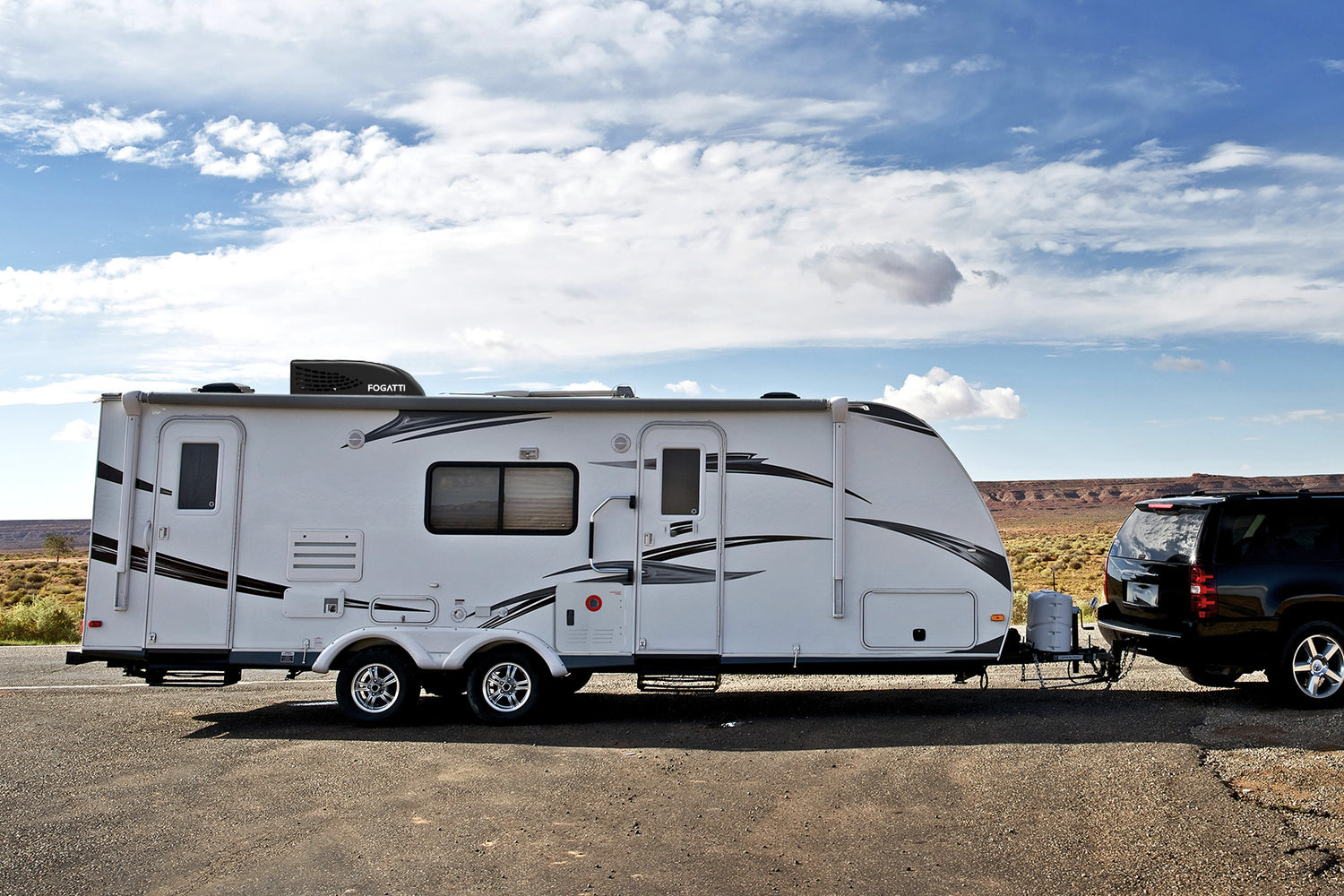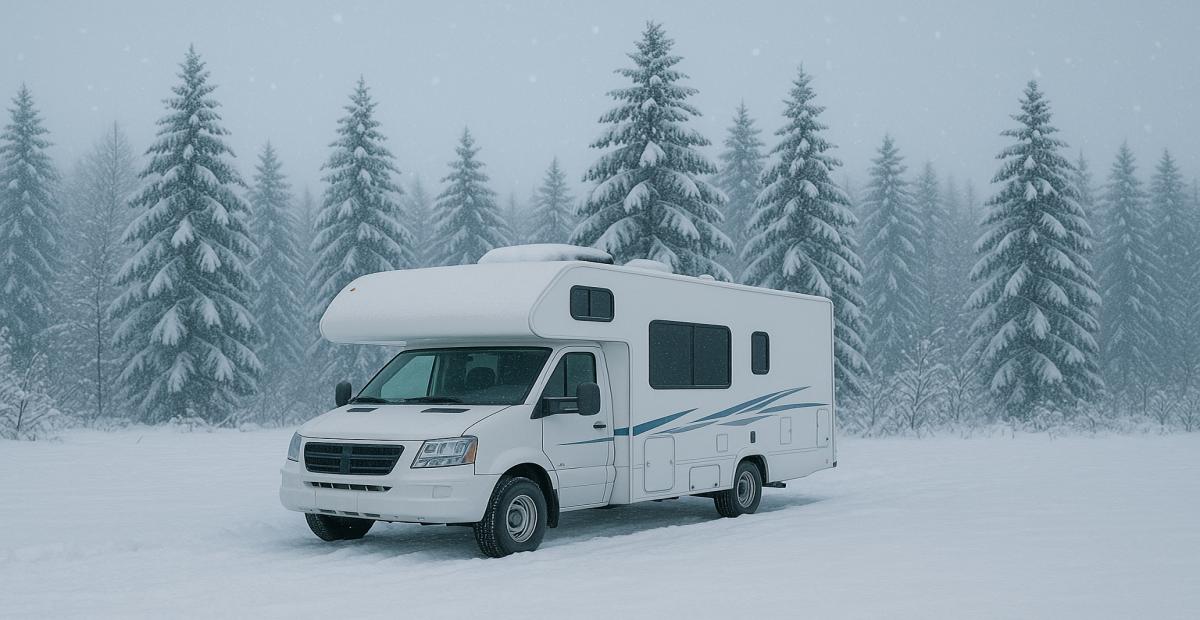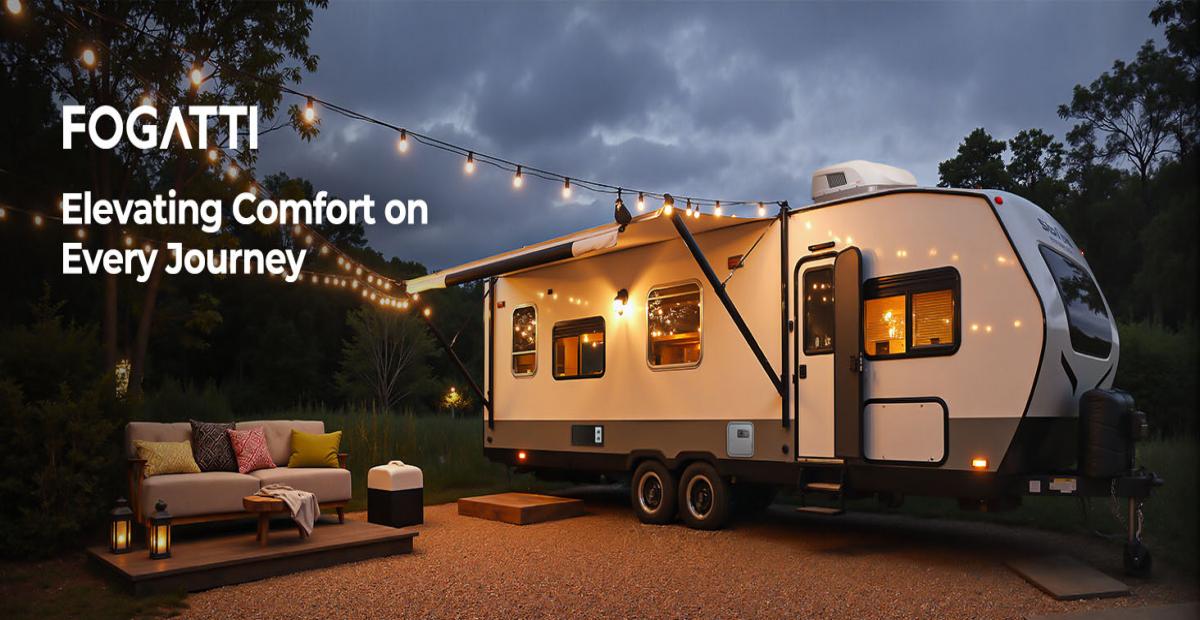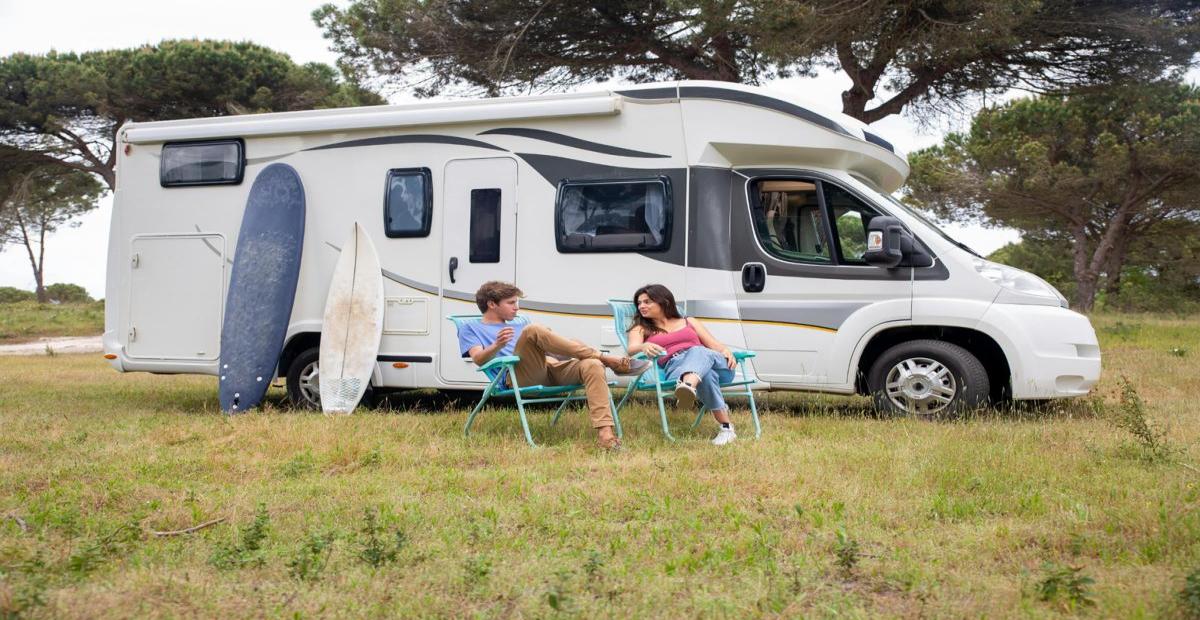The Correct Way of Cleaning Your RV Air Conditioner and The Mistake to Avoid
Imagine this: You’re on a long road trip with your RV, and the sun is scorching hot. You turn on your RV air conditioner, and it’s not working properly. After checking it out, you realize that it's clogged with dirt and debris. This scenario is every RV owner’s nightmare. That's why it's crucial to know the do's and don'ts when cleaning your RV air conditioner. Cleaning it properly not only ensures that it runs smoothly but also saves you from costly repairs and replacements.
Do's When Cleaning Your RV Air Conditioner
Clean Air Vents:Over time, the air vents in your RV air conditioner can accumulate dirt, dust, and debris, leading to poor air circulation and reduced cooling ability. To avoid this, it's essential to clean your air vents regularly. You can use a soft brush or cloth to remove any buildup on the vents gently. Alternatively, you can use a vacuum cleaner with a soft brush attachment to remove dust and debris from the vents. By doing this, you can ensure that air flows freely, and your RV stays cool and comfortable.
Clean The Drainage System:
The drainage system of your RV air conditioner is another crucial area that requires regular cleaning. Dirt, debris, and other contaminants can clog the drainage system, leading to water damage and even mold growth. To avoid this, you can use a soft brush or compressed air to clean the drainage system. Make sure to remove any debris or buildup that could obstruct the flow of water. If you notice any signs of water damage or mold growth, it's essential to address the issue immediately to prevent any further damage.
Inspect For Leaks:
Leaks can also be a problem with RV air conditioner, and it's essential to inspect your unit regularly for signs of leaks. Check for any water stains or mold growth around the unit or inside your RV. If you notice any leaks, be sure to fix the problem immediately. Ignoring leaks can lead to significant damage, including structural damage to your RV.
Clean The Drain Line:
The drain line of your RV air conditioner is another important area that requires regular cleaning. A clogged drain line can prevent water from draining properly, leading to water damage and other issues. To clean the drain line, you can use a soft brush or compressed air. Be sure to remove any debris and buildup that could obstruct the flow of water.

Don'ts When Cleaning Your RV Air Conditioner
Don't Use Harsh Chemicals:Using harsh chemicals like bleach, ammonia, or other cleaning agents can damage the delicate components of your RV air conditioner and pose a health risk. Instead, use a mild soap and water mixture or a specialized RV air conditioner cleaner, as recommended by the manufacturer.
Don't Use A Pressure Washer:
Using a pressure washer to clean your RV air conditioner might seem like a great idea, but the high-pressure water can damage the unit's delicate components. Instead, use a hose or a soft-bristled brush to remove any dirt and debris that may have accumulated on the outside of the unit.
Don't Neglect Regular Maintenance:
Ignoring regular maintenance of your RV air conditioner can cause costly repairs or even replacement. Regular maintenance includes cleaning the air filters, checking and cleaning the ducts, inspecting for leaks, and cleaning the drainage system. Neglecting any of these tasks can lead to poor AC performance, higher energy bills, or even health hazards.
Don't Forget To Replace Air Filters:
The air filters are an essential part of maintaining the efficiency of your RV air conditioner. Clogged filters restrict airflow, reducing cooling performance, and increasing energy consumption. Be sure to replace the air filters every 3 months or as per the manufacturer's instructions.
Don't Overlook The Ducts:
Air ducts can accumulate dirt, dust, and other contaminants, leading to poor air quality and reduced cooling ability. To prevent this, clean the ducts regularly with a soft-bristled brush or a specialized duct cleaning tool.
Don't Forget To Check The Drain Hose:
Like the drainage system, the drain hose can also become clogged with dirt and debris, causing water damage. Check the drain hose regularly and clean it if necessary.
Frequently Asked Questions
How to select the right RV air conditioner?
Selecting the right RV air conditioner is essential to ensure comfort during your road trip. With so many options available in the market, it can be overwhelming to choose the one that suits your needs. Factors such as size, power, energy efficiency, noise level, and type of installation are crucial to consider before making a purchase. In this guide, I will walk you through the steps to select the right RV air conditioner, so you can enjoy your travels without compromising on comfort.
How to troubleshoot common issues of an RV air conditioner?
The process of troubleshooting common issues with an RV air conditioner involves checking the power source, ensuring proper airflow, and examining the thermostat and compressor for malfunctioning. Other potential problems may include low refrigerant levels, dirty filters, or faulty electrical components. A systematic approach to identifying and addressing issues can help ensure the RV air conditioner operates efficiently and effectively, providing a comfortable environment for travelers.
What are the steps for upgrading your RV air conditioner?
The steps for upgrading your RV air conditioner include determining the right size of air conditioner needed, selecting the type of air conditioner, removing the old air conditioner, installing the new air conditioner and making sure it is securely in place, connecting the wiring and power supply, and testing the new air conditioner to ensure it is working properly. It is also important to consider any necessary upgrades to the electrical system or roof structure to accommodate the new air conditioner.
What are the safety consideration for an RV air conditioner?
The safety considerations for an RV air conditioner include turning off the unit before servicing it, wearing protective gear such as gloves and goggles, ensuring proper ventilation during operation, avoiding placing objects on or near the unit, and following the manufacturer's instructions for installation, maintenance, and repair. Additionally, it is important to be aware of potential electrical hazards and to seek professional help if unsure about handling any part of the unit.
What are the common problems of RV air conditioner?
Some common problems with RV air conditioners include refrigerant leaks, compressor issues, electrical problems, clogged filters, faulty thermostats, and dirty coils.
Fogatti would like to stress the importance of proper maintenance and cleaning of your RV air conditioner. When cleaning, do follow manufacturer guidelines and use appropriate cleaning agents. Don't use harsh chemicals or abrasive tools that could damage the delicate components of the unit. Regular cleaning and maintenance can prevent common issues like leaks, frozen coils, and mold growth, ensuring the longevity and efficiency of your RV air conditioner.
Cleaning your RV air conditioner regularly is crucial for its efficient performance and longevity. The do's and don'ts outlined in this article can help you maintain your RV air conditioner and avoid costly repairs or replacement. With proper care, your RV air conditioner can keep you cool and comfortable on your travels. Remember, a well-maintained air conditioner contributes to a safer and healthier RV environment.


